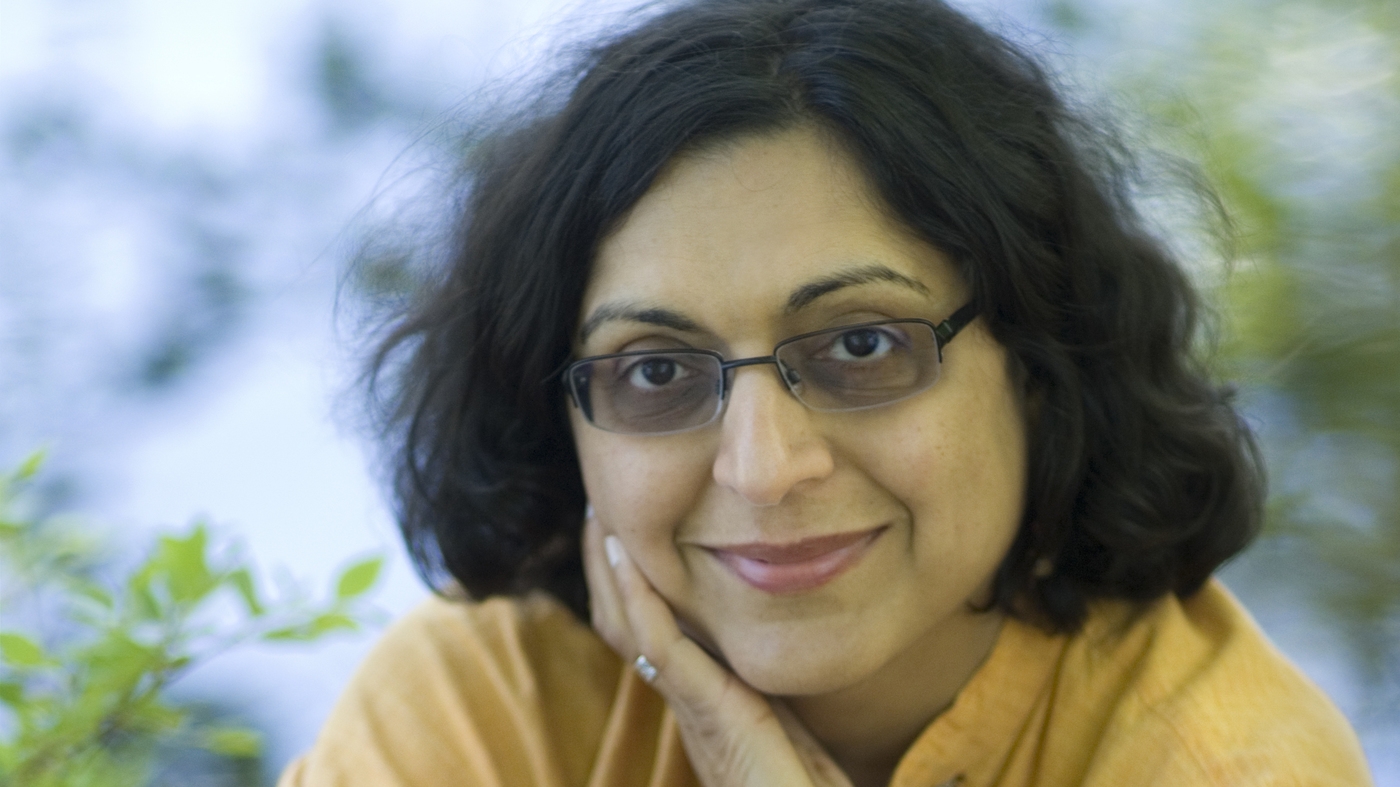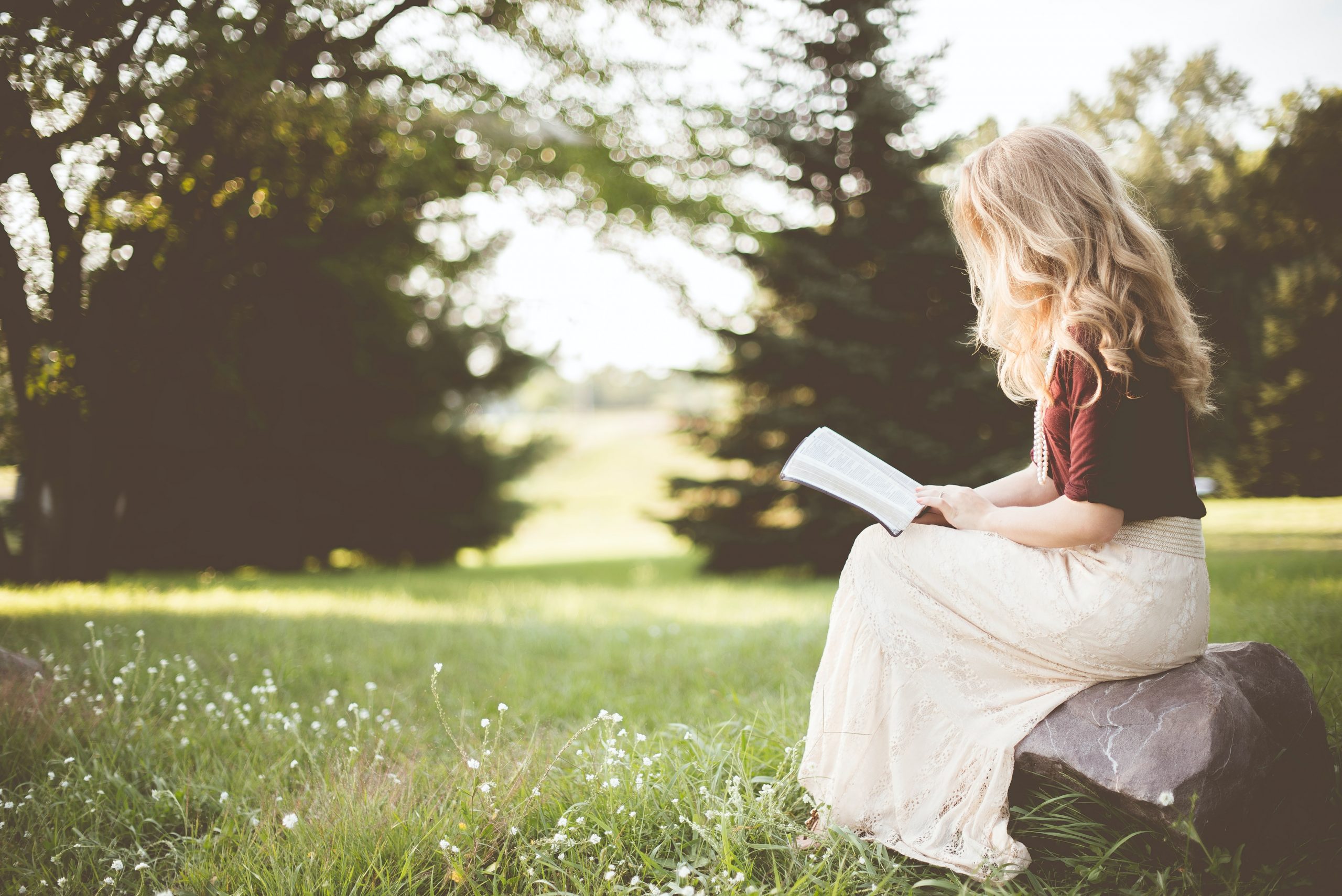
In this version of twenty questions, I send a list of questions to a willing author and they choose their own interview by handpicking the questions (and how many!) they want to answer. Thrity Umrigar is the author of The Story Hour. Here is what Thrity had to say about reading, writing, and whether talking solves problems.
As a published author, what’s been the biggest surprise about life after the publication of your first book?
Honestly, it’s been the kindness of readers. People who make the time to come to my readings. Or write to me on my fan page on Facebook. Or write me long, detailed emails that sometimes break my heart but always remind me that words matter, that literature matters. That there is a good reason to spend months at a time lost in writing a book, neglecting friends, family, house, pets.
Who was your favorite character to write, and why did you have an affinity for that character in particular?
Honestly, I have loved writing all my characters. Each one is different, each one carries his or her own history, and I’m intrigued by them all. I love trying to figure out why they behave the way they do, what in their past tugs at their present. I have to confess that Lakshmi was probably the most challenging one to write because of her ungrammatical, idiosyncratic English and the way she would turn a phrase. In many ways, Lakshmi was a stranger to me—she grew up in the Indian countryside, she was the daughter of peasants, she had an eighth-grade education. She had very little in common with me. And she insisted in speaking in this very non-standard English. So I had to get to know her in the course of writing this novel.
How did you get started writing, and what kind of books do you like to write?
I have been writing for as long as I can remember. In fact, my earliest memories of myself are of sitting on the balcony of my Bombay apartment as a young child, scribbling poems in my notebook. I think I must’ve worn out the rocking chair where I wrote. In my teenage years I switched to writing short stories. I think I was 15 when my first short story was published in a national women’s magazine. No future success, not even publishing my first novel, came close to my joy and excitement at seeing my name in that magazine.
I began writing my first novel, Bombay Time, when I was working full-time as a journalist and going to school part-time to work on a PhD in English. Reading those great books inspired me to try my hand at novel writing. But working a job and going to school became very demanding and I set the novel aside. A couple of years later, I applied for the Nieman fellowship to Harvard, in the hopes that it would allow me the time to pick up the novel again. I threw away most of the old draft and rewrote the novel in about four months. And then I got absurdly lucky and found an agent and a publisher in quick unison.
That first novel allowed me to change careers and I now teach creative writing at Case Western Reserve University in Cleveland. As a writer, the most important thing to me is that the novel must have integrity. That is, it should be emotionally honest. I think readers can see through books that are lazy, that pander to their audience, that take shortcuts, or wrap up things too neatly at the end. My first allegiance as a writer is to my characters, to the novel itself.
I am also not interested in language for language’s sake. That is to say, I am not too interested in puns and wordplay and being clever in my books. I love elegant, breathtakingly beautiful language, but I think that language should be put to good use—to develop memorable characters, to advance plot, to illuminate the human condition. I want my books to stand for something, to make a point, to touch someone’s heart, to make them see a situation or an issue in a whole new light. This is the expectation with which I come to books as a reader and as a writer.
What does a typical day look like for you and how do you manage a busy schedule?
Oh, Lord. My problem is there is no such thing as a typical day. Like many Americans, I find myself juggling countless things and some days are spent simply putting out fires. Crisis management on a personal scale. I find that the onslaught of work-related emails really takes a toll on the creative process. Even on days when I’m not at work, one email request can alter the trajectory of my day. For instance, a day that I had set aside for writing may end up being a day I spend writing a recommendation letter for a student. And the Internet has made us all impatient—we expect our requests to be addressed as soon as they’re made. I think this is the reason I love to write—it’s the only time in my life that truly belongs to me and allows me the introspection and the going deep within that not much else does.
Can you share with us any routines, food or recipes, or favorite books or rituals that help you thorough the writing process?
I spent 17 years as a print journalist and the discipline that it fostered was invaluable. What this means that I can pretty much write in any situation or place. I have a pretty good capacity for blocking out all external noise. Because I have a pretty demanding job and family responsibilities, my erstwhile routine of writing at 5 AM every morning has been disrupted. So, I now write at work, in my home office, in coffee shops, at airports, in airplanes. A lot of the composing of my novels happens when I am on long walks or in the shower. For me, sitting at the computer is the mechanical act of typing. Most of the true writing of a novel goes on inside my head and since I carry my head with me wherever I go, I can write pretty much anywhere.
What was it about this the story that made it the one you had to tell at this time? What impact did telling this story have on your life? Did you find that it had changed you?
I wrote The Story Hour because I was intrigued by two questions that in some ways, they may seem like contradictory impulses or assumptions. One was that therapy is primarily a white, middle-class concept, one that is alien to people in many cultures—in Third World countries, for instance, where talking about your problems to a stranger may seem not only counter intuitive and indulgent but also futile because poverty, illiteracy etc. are not going to be cured by talking about them. But it is also true in subcultures within Western society—immigrant communities, blue-collar and working class communities.
But at the same time, I understood that talk therapy was simply a form of storytelling—that is, you are telling the story of your life to another person. By doing so, you are shaping a narrative of your life and this act itself can lead to personal growth and transformation. And that’s why it’s called The Story Hour—that hour a week that Lakshmi and Maggie spend in therapy together is when Lakshmi is allowed to “speak her truth,” tell her own story. It allows her to first, reflect on her past, and then get beyond it.
I’m not sure that writing The Story Hour changed me but as always happens when you read literature, it may have humanized me a bit more, made me understand how flawed all human beings are, often in ways and for reasons we never fully understand. It also showed me the power of forgiveness and more importantly, the power that comes from seeking forgiveness, in apologizing. People always talk about how liberating it is to forgive; but even saying, “I’m sorry,” has its own power.
Did you know what you wanted the title of the book to be? How involved were in choosing the name of the book?
My working title for this novel was ”I Begins.” That’s the first and last line of the book. But I knew it was ungrammatical and won’t fly. And the more I thought about this book, I realized that it was really about storytelling and its narrative style itself was the telling of a story. Also, Lakshmi thinks of her weekly therapy sessions as a kind of Story Hour.
Are you able to read when you’re writing and if so what books inspire you when you’re working your own book(s)?
Halfway through my Ph.D. program I realized that I was never going to be a good critic because reading good literature didn’t make me want to analyze those texts; it simply made me want to write my own books, tell my own stories. And that has been true all my life—when I read something great, it immediately inspires me to tell my own story. So to me, reading and writing are indistinguishable from each other.
If you could have everyone read five books, which ones would they be?
This is so broad a question that I’ll limit it to 19th and 20th century books: Walden by Henry David Thoreau; The Waves by Virginia Woolf; The Taylor Branch Trilogy on the Civil Rights Movement (I know; I’m cheating); Beloved by Toni Morrison; Midnight’s Children by Salman Rushdie, Tell Me a Riddle by Tillie Olsen; Housekeeping by Marilynne Robinson
(This is probably the hardest question anyone has ever asked me. Limiting favorite authors to five! Cruel.)
Are there other books you love or writers you admire that are from your local area?
Oh, yes. Too many to mention. But here are a few—David Giffels, Dave Lucas, Dan Choan, Sarah Willis, Paula McLain, Loung Ung, Alissa Nutting, and my colleagues at Case, Mary Grimm, Susan Grimm, Sarah Gridley, Michael Clune, Brad Ricca. I am probably leaving out at least twice the number of people that I’ve mentioned. One of the best-kept secrets about the Cleveland area is that we have an amazing writing community here.
Where do you most love to write? Are there places where it comes to you easier than others?
Near the ocean. Since I grew up in Bombay, the ocean is in my blood. Alas, I live in Ohio. (But we do have a Great Lake.)
What’s next?
I’m currently working on a novel with an African-American protagonist. It is a story about the lengths people will go to to claim what doesn’t really belong to them. There are no Indian characters in this novel. The working title is The Destiny, but I think that will change.



